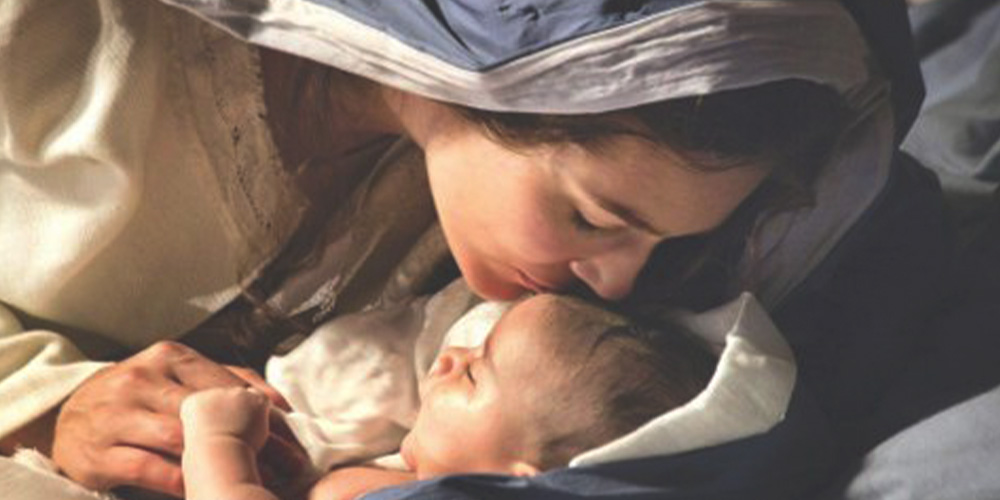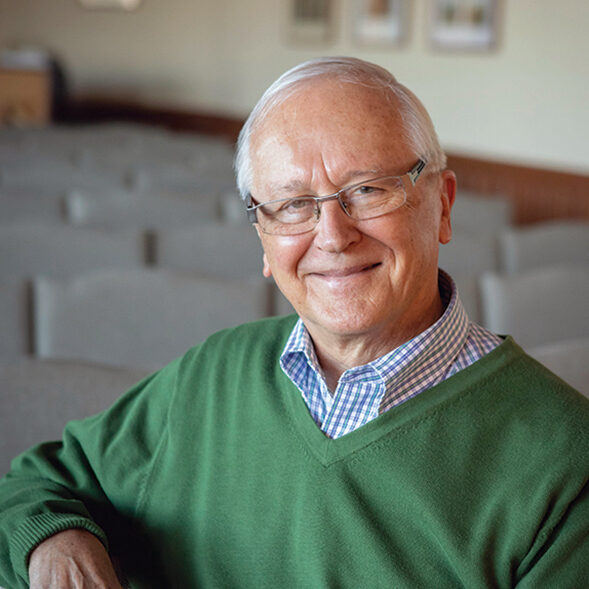 |
Mary was a special woman, chosen for an exceptional part in God’s plan. But Matthew does not characterize her as anyone special. He just says that the mother of Jesus, “was pledged to be married to Joseph” and that she was pregnant before they came together (1:18). Our Christmas stories begin here.
Mark doesn’t mention her except when Jesus arrives in Nazareth. There he also mentions the brothers and sisters—perhaps only cousins—of Jesus (Mark 6). John only mentions that Mary was at the cross with him when Jesus was crucified. He doesn’t even name her, simply calling her “his mother” (John 19:25).
Luke, on the other hand, gives us more details and insight into this remarkable woman. He tells us that he investigated the eyewitnesses of God’s plan. That, no doubt, included Mary, who “treasured up all these things and pondered them in her heart” (2:19). The familiar Christmas stories Luke wrote most likely flowed from those treasured memories.
Remarkable indeed! She accepted her part of the miracle of her son’s birth—pregnant as a virgin—so God would become human like us but without inheriting human sin and depravity. Her son was the sinless son of God.
[Mary] came to life’s end knowing there was only one hope for her own resurrection and heaven’s joy—a hope that stretched back to a remarkable birth.
We know so little from Scripture. Sadly, the vacuum has been filled with ages of speculation, legends, and theories. Most artistic depictions of Mary show her serene, calm, and radiant. She is almost never pictured as harried with household chores or childcare. She did have one perfect child, but what about those other brothers and sisters? For many, Mary had no other children and was always a virgin, but the Scriptures do not say this.
What did she think of her son, Jesus? Luke helps us understand. When Mary and Elizabeth met, the older woman greeted her: “Blessed are you among women, and blessed is the child you will bear! But why am I so favored, that the mother of my Lord should come to me?” Mary understood and said, “My soul glorifies the Lord and my spirit rejoices in God my Savior.” She knew that Jesus was the fulfillment of all God’s prophecies, “just as he promised our ancestors” (Luke 1:42,43,46,47,55). He was her Savior too.
During her remaining days she watched, listened, and remembered. Thirty-three years later she was with John at her son’s cross—older, grim, perhaps gray and frail—feeling the sword pierce her soul as Simeon had told her long ago (Luke 2:35). In the midst of his own suffering, Jesus asked John to care for Mary like his own mother.
Three days later she saw another miracle. Her son rose from the dead. Her Savior had completed his tasks. Then we find Mary among the believers waiting for Pentecost (Acts 1:14). We hear no more of her. What more can we expect? Like all of us, she came to life’s end knowing there was only one hope for her own resurrection and heaven’s joy—a hope that stretched back to a remarkable birth.
Perhaps as Mary did each year of her life, we remember that special birth. When our days end, we too treasure the same hope. In all the glitter and distractions, may your Christmas bring you the joy and hope it brought Mary.
Author: John A. Braun
Volume 108, Number 12
Issue: December 2021
- We have love
- We have hope
- We have faith
- I come
- Love one another
- Palmetto palms and wrens
- Fathers
- Mother’s Day
- Believe the Word
- The Judas priority
- In Christ
- A thought: Mary
- Come, Lord Jesus!
- A thought: Here we stand!
- A thought: Obedience
- A thought: Hope
- A thought: Almighty God
- A thought: Scripture alone
- A thought: Their message to us
- A thought: The Ides of March
- A thought: The path of the righteous
- A thought: The Bible still matters
- A thought: Happy birthday, Brother!
- A thought: Change
- A thought: Our Father
- A thought: The difference
- A thought: Imperfect world, imperfect life
- A thought: Joy and peace today and everyday
- A thought: Good job!
- In God’s hands
- A thought: Outing death
- A thought: The Christ
- A thought: Trusting what we cannot see
- A thought: Partners
- Heirs of heaven
- Hope
- The Avengers and two lions
- Faith in Jesus
- God’s policy of love
- Lord, have mercy!
- Light in the darkness
- Why?
- The shroud
- A Lutheran Lent
- Where is God?
- Turning pages







